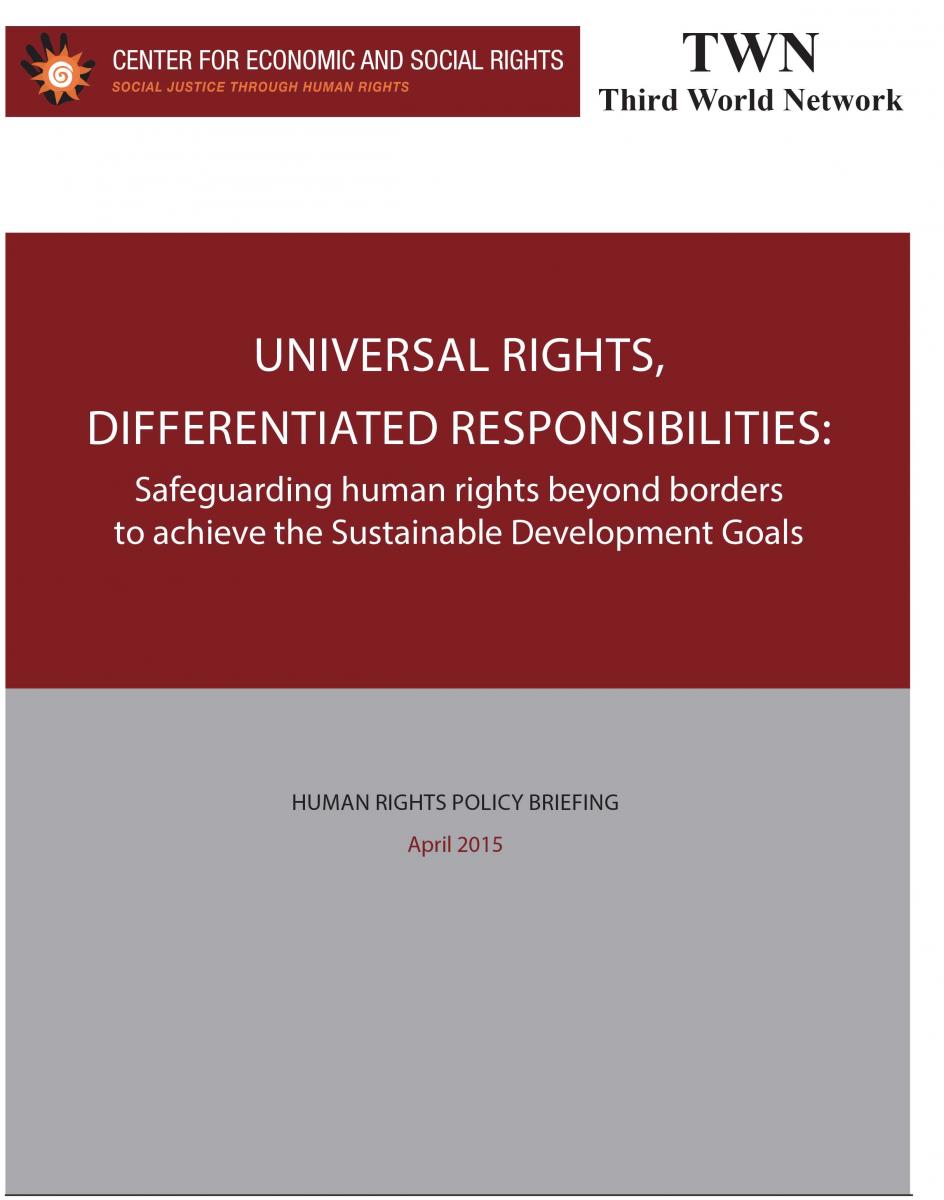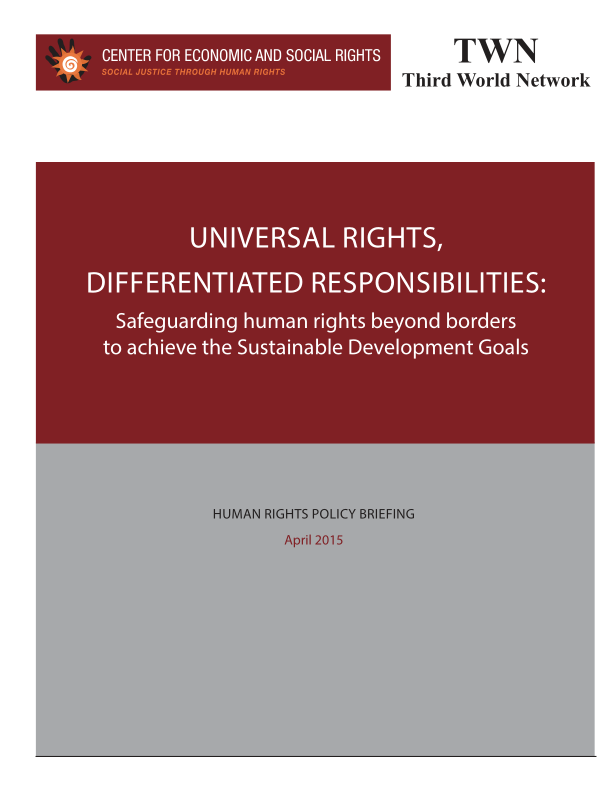As the UN holds two seminal, simultaneous meetings this week to determine the future of the post-2015 and the financing for development (FfD) agendas, the Center for Economic and Social Rights and the Third World Network are launching a new briefing which argues that human rights obligations can provide a fresh lens on one of the most entrenched stalemates in the negotiations: the respective responsibilities of governments North and South to achieve and to finance the Sustainable Development Goals (SDGs)
 'Universal Rights, Differentiated Responsibilities: Safeguarding human rights beyond borders to achieve the Sustainable Development Goals' sets out how human rights provide a normative framework that can help delineate the duties states have to cooperate with each other in the achievement of sustainable development commitments. In particular, the obligations of states to respect, protect and fulfil human rights extraterritorially as well as domestically offer a clear set of common standards to assess whether governments are upholding their common but differentiated responsibilities relating to sustainable development, including thoseof wealthier countries regarding SDG financing and means of implementation.
'Universal Rights, Differentiated Responsibilities: Safeguarding human rights beyond borders to achieve the Sustainable Development Goals' sets out how human rights provide a normative framework that can help delineate the duties states have to cooperate with each other in the achievement of sustainable development commitments. In particular, the obligations of states to respect, protect and fulfil human rights extraterritorially as well as domestically offer a clear set of common standards to assess whether governments are upholding their common but differentiated responsibilities relating to sustainable development, including thoseof wealthier countries regarding SDG financing and means of implementation.
In an interconnected and interdependent world with vast disparities in power, capacity and means, states exert significant influence on sustainable development beyond their borders in a plethora of ways; be they through the cross-border spillover effects of national policy decisions, via their bilateral and multilateral policies on tax, trade, investment and finance, through their capacity to regulate multinational corporations over whom they have jurisdiction, or as voting member states in international financial institutions. The experience of the last fifteen years has shown how profoundly these factors limit the capacity of other national governments to realize their human rights and development commitments.
International law - anchored in the UN Charter and various international human rights treaties and jurisprudence - affirms that states have certain human rights duties which extend outside of their own territory. Though rarely invoked in post-2015 debates, extraterritorial human rights obligations can shed useful light on current discussions around international cooperation and financing. They provide normative grounding for the commitment to policy coherence under the SDG goal on the global partnership for sustainable development, while buttressing the principle of Common But Differentiated Responsibilities (CBDR), reaffirmed since the 1992 Rio Declaration on Environment and Development, but whose scope has been hotly contested by some states in the context of the post-2015 and FfD negotiations.
CESR and TWN's joint briefing elucidates the legal sources for these extraterritorial obligations, their policy relevance for the post-2015 and FFD processes, and illustrates various good practices of governments in examining and addressing their impacts on human rights and sustainable development beyond their borders. It also proposes ten concrete ways in which states should align their sustainable development and financing commitments with these existing international duties. These include:
- Conducting sustainable development impact assessments of tax, trade and investment policies
- Ensuring mandatory human rights reporting by large businesses
- Establishing ex ante eligibility criteria for private sector partnerships
- Regulating financial markets more effectively
- Fulfilling development assistance commitments
- Diversifying public financing measures
- Establishing a debt workout mechanism
- Monitoring extraterritorial impacts as part of post-2015 and FfD review processes
- Promoting equitable and meaningful participation in the global partnership for sustainable development
- Ensuring transparent global governance
This timely contribution to the post-2015 and FfD negotiations is relevant to government negotiators and advocates seeking to break through the stale geo-political deadlock at the UN, and to bring to bear a more holistic and globally balanced perspective on human rights in the definition, implementation, financing and monitoring of these new sustainable development commitments.
